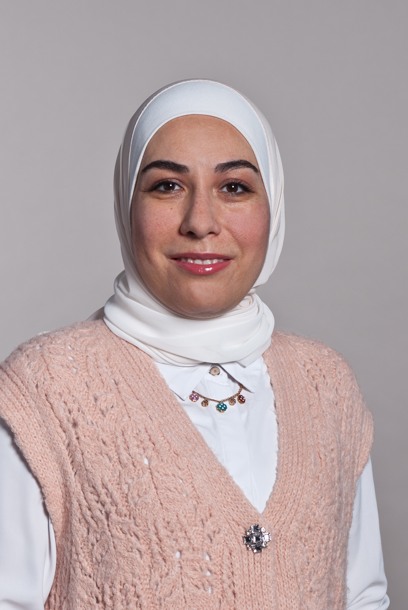New research highlights challenges faced by immigrant entrepreneurs in the Swedish market
New research from Halmstad University shows that female entrepreneurs with an immigrant background use digital tools to avoid discrimination. The study also reveals that refugees who run businesses in Germany feel more motivated than those in Sweden. In her thesis on immigrant entrepreneurship, Ghazal Zalkat surveys immigrants’ views on the opportunities and challenges of entrepreneurship.

Since the refugee crisis in 2015, Sweden has seen an increase in refugee-owned businesses, but very little research has been done on the experiences of such entrepreneurship. This was one of the main reasons why Ghazal Zalkat, a doctoral student at Halmstad University, decided to delve into the subject. She wanted to explore how refugees themselves perceive opportunities and challenges in the Swedish market, in order to develop a framework that can assist policy makers in the formulation of integration policies.
“The findings emphasise the need for policy adjustments and interventions that offer financial, administrative and legal support to refugee entrepreneurs during the start-up and consolidation phases of their enterprises”, says Ghazal Zalkat.
Experiencing different motivations
In her thesis, she compares refugees who started businesses in Sweden with their counterparts in Germany, a country that also took in a large share of refugees between 2015 and 2016. In the comparison, she observed significant differences between the refugees’ experiences in the two countries.
“Syrian refugees in Germany and Sweden experience different motivations when it comes to entrepreneurship. Those living in Germany are more motivated by market structures and educational opportunities, have more know-how and are less likely to suffer from negative motivation due to discrimination or limited opportunities, compared to their counterparts in Sweden”, says Ghazal Zalkat.

Ghazal Zalkat defended her doctoral thesis “Immigrant Entrepreneurship In Sweden: Challenges And Opportunities Related To Business Development” in April.
Women hide behind a digital curtain
The research also showed that female refugees who run businesses benefit from the digitalisation in society. Digital tools provided women with the opportunity to be semi-anonymous, which Ghazal Zalkat believes has made it easier for them to enter the Swedish market.
“The use of digital tools among female refugees gives them more flexibility, self-confidence and independence. In addition, digitalisation helps them foster their integration within the host country’s market, especially in the start-up phase, due to the semi-anonymity offered by digital platforms”, says Ghazal Zalkat, explaining:
“In the digital sphere, they can hide their identity, which means customers cannot judge them for being women or refugees.”
The thesis is part of the EU project PLOUTOS, which aims to help third-country nationals integrate into their host country. This is done by, for example, increasing their knowledge of economics and financial services. The results of Ghazal Zalkat’s thesis have contributed to the project’s body of knowledge and will be used to help immigrants achieve financial independence more quickly.
“The PLOUTOS project helped me to implement my research results and findings in practice, and it allowed me to be close to immigrants, listen to their voices and explore the challenges and opportunities they experience”, says Ghazal Zalkat.
Text: Lovisa Essunger
Photo: iStock (top photo), Magnus Karlsson (portrait photo)


